Public Speaker Series
2025-26 2024-25 2023-24
2022-23 2021-22 2020-21
2019-20
2024-25
Power to the People: Can Decentralization Solve Violent Conflicts?
Common Law Liberalism: A New Theory of the Libertarian Society
Has the U.S. Lost Its Competitive Edge?
The Next American Economy: Nation, State, and Markets in an Uncertain World
Five Years Since "Two Weeks to Flatten the Curve": Reflections on the COVID-19 Pandemic
How to Run Wars: A Confidential Playbook for the National Security Elite
Power to the People: Can Decentralization Solve Violent Conflicts?
September 10, 2024
Jennifer Brick Murtazashvili, University of Pittsburgh
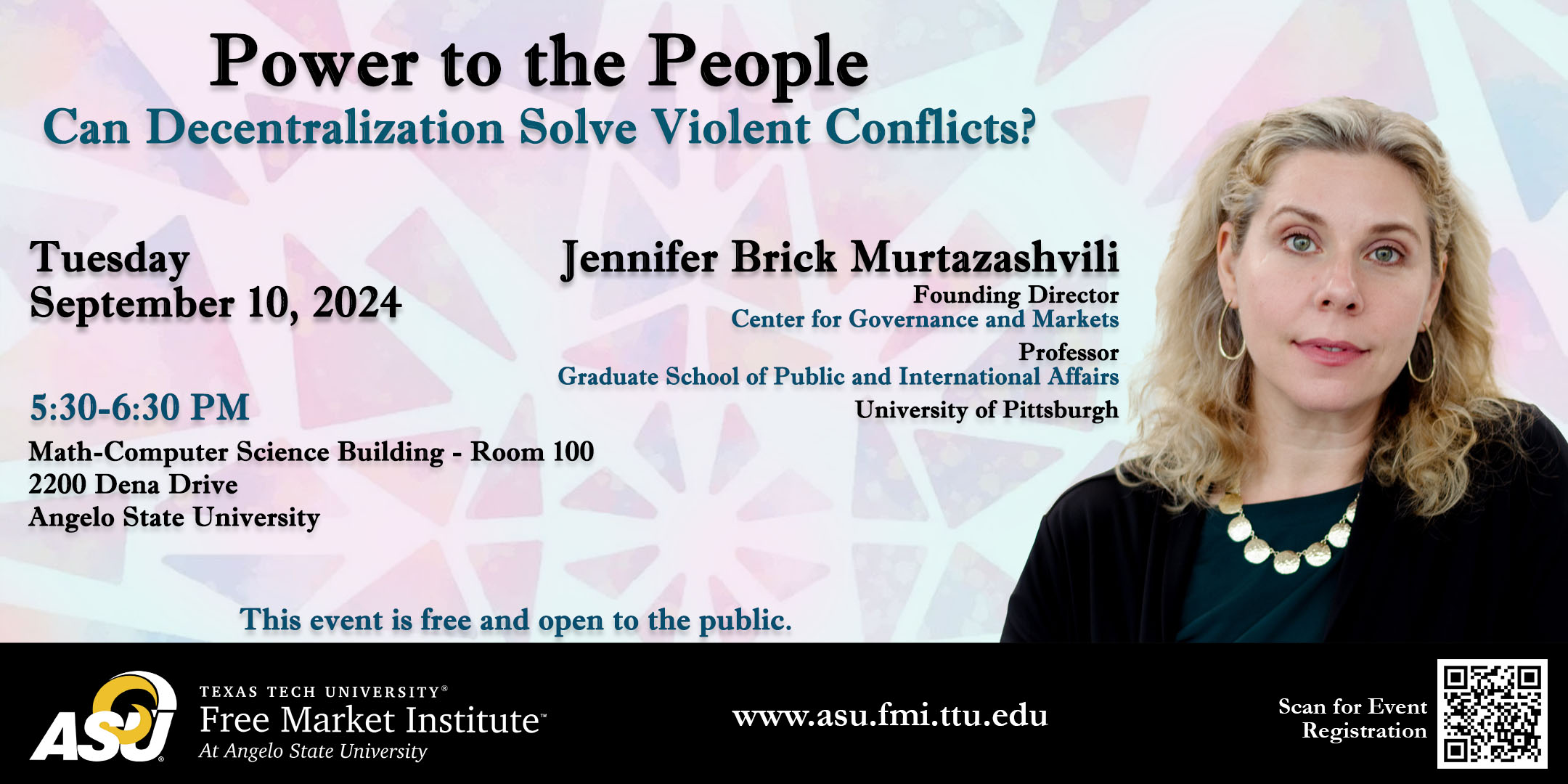
About the Program
Does decentralizing state power help or hurt countries torn by conflict? Recent experiences in Ukraine and Afghanistan present two unique case studies that can foster knowledge and understanding of what happens when governments try to spread out decision-making. In comparing these real-world examples, Jennifer Brick Murtazashvili showed why cookie-cutter solutions often fail and why really understanding how things work on the ground is so important. Doing so challenges us to think differently about how countries can heal after conflict, strengthen resolve to fight foreign invasion, and build trust between people and their government.
Common Law Liberalism: A New Theory of the Libertarian Society
October 16, 2024
John Hasnas, Georgetown University
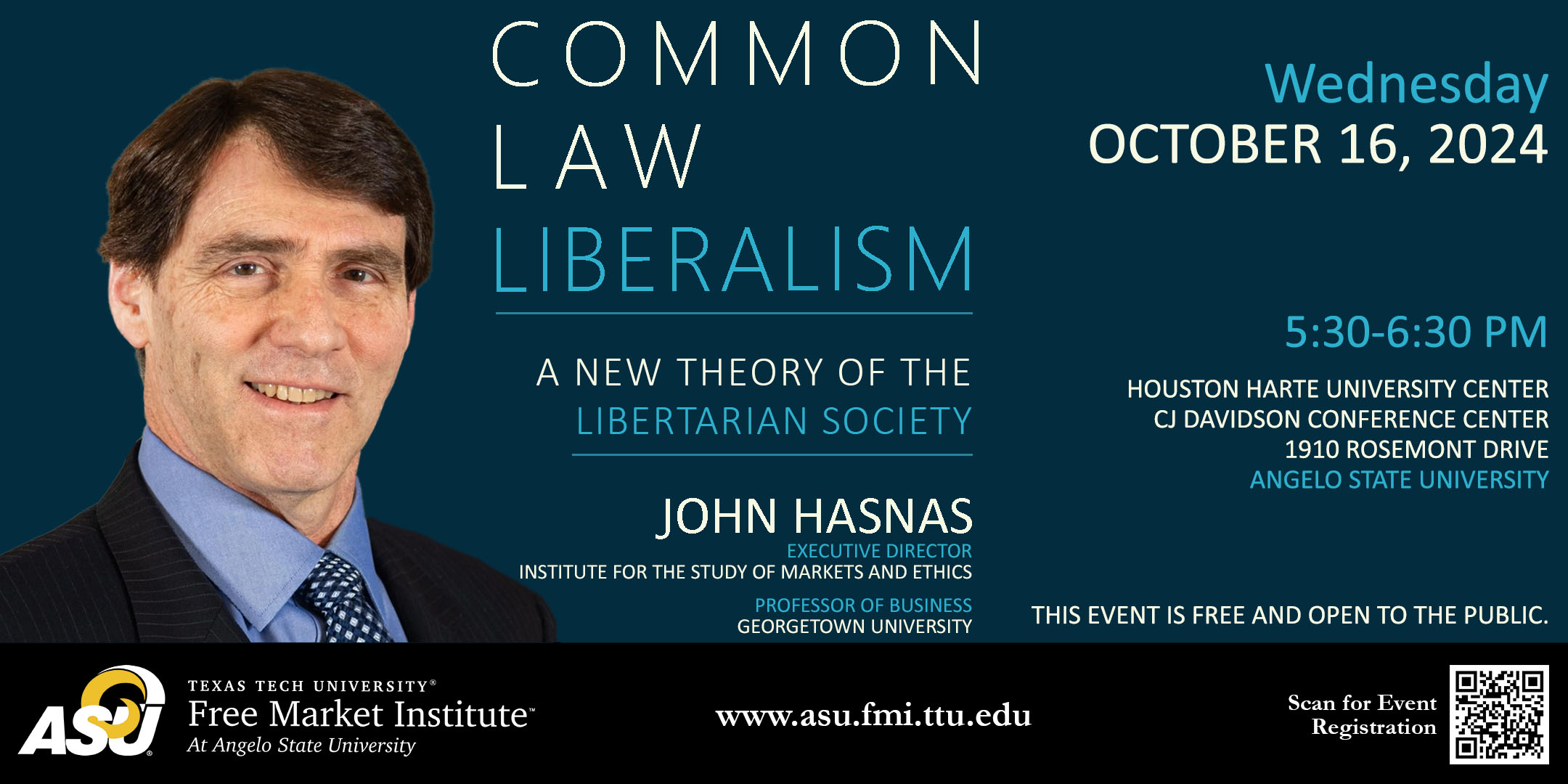
About the Program
In conventional political philosophy, law is understood as consciously created rules that are a necessary mechanism for regulating the excesses of the free market. Although coercive in nature, law is seen as a necessary defense against anarchy. But is the situation that simple? John Hasnas argued that this view presents a false dichotomy and offered his view that the common law can serve as an effective alternative to traditional politically created legislation.
Has the U.S. Lost Its Competitive Edge?
November 14, 2024
Brian Albrecht, International Center for Law & Economics
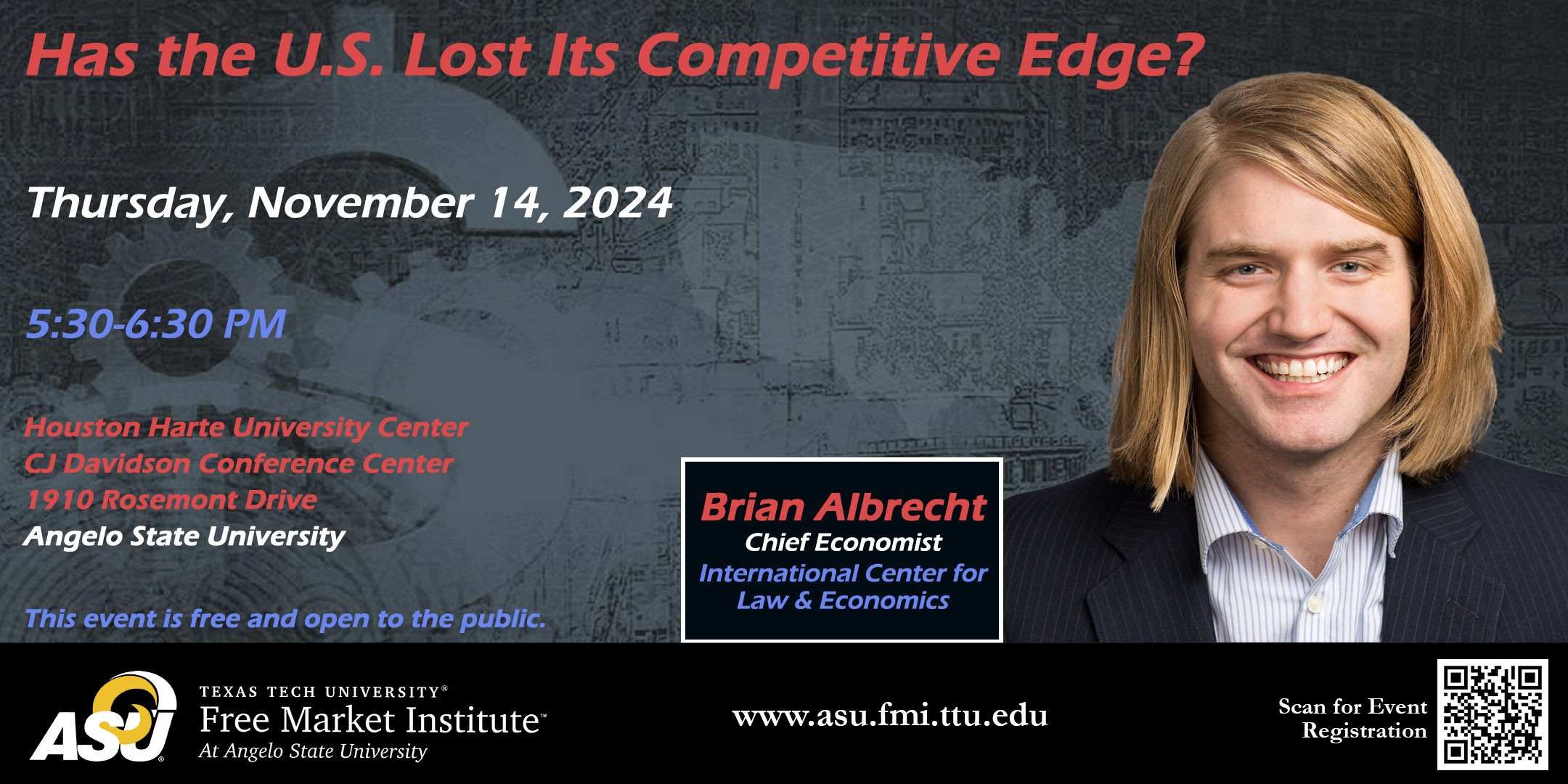
About the Program
Are US markets competitive? What makes markets competitive? While headlines point to doom surrounding rising concentration, increasing markups, and declining business dynamism as evidence of weakening U.S. markets, these metrics often fail to capture how modern competition actually works. Brian Albrecht challenged common misconceptions about measuring market competition arguing instead, that U.S. markets remain uniquely effective at allocating resources to their most productive uses, driving technological progress. The data suggests that rather than losing its competitive edge, the U.S. economy has moved ahead - with technological change and global trade reshaping how firms compete and markets function.
The Next American Economy: Nation, State, and Markets in an Uncertain World
February 12, 2025
Samuel Gregg, American Institute for Economic Research
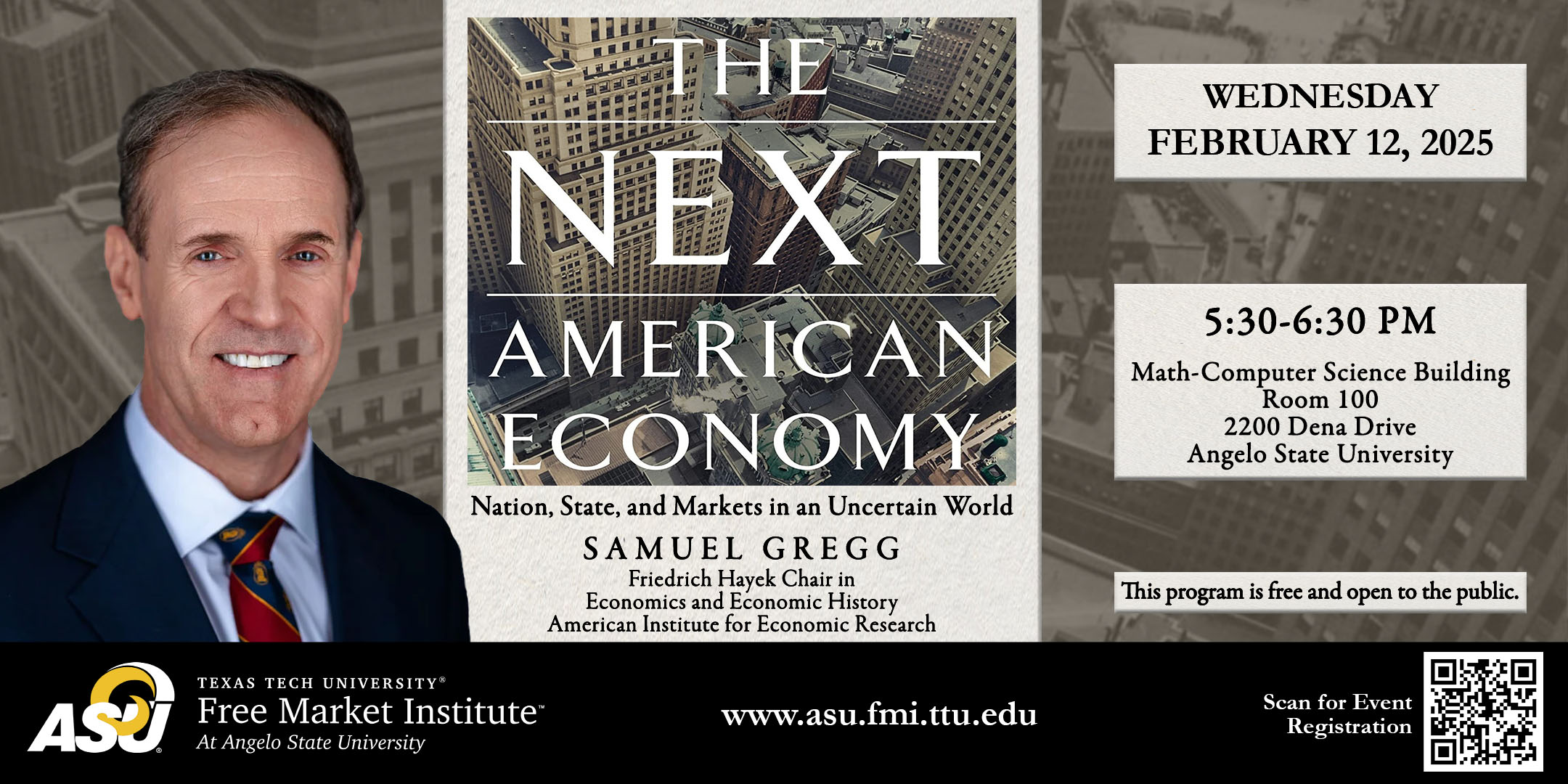
About the Program
One of America’s greatest success stories is its economy. For more than a century, it has been the envy of the world. The opportunity it generates has inspired millions of people to want to become American. Today, however, America’s economy is at a crossroads. At stake is not only the future of the world’s biggest economy, but the economic liberty that remains central to America’s identity as a nation. Samuel Gregg insists there is an alternative: a vibrant market economy grounded on entrepreneurship, competition, and trade openness that allows America as a sovereign nation to defend its interests in a dangerous world without compromising its belief in the power of economic freedom.
Five Years Since "Two Weeks to Flatten the Curve": Reflections on the COVID-19 Pandemic
March 27, 2025
Martin Kulldorff, Journal of the Academy of Public Health
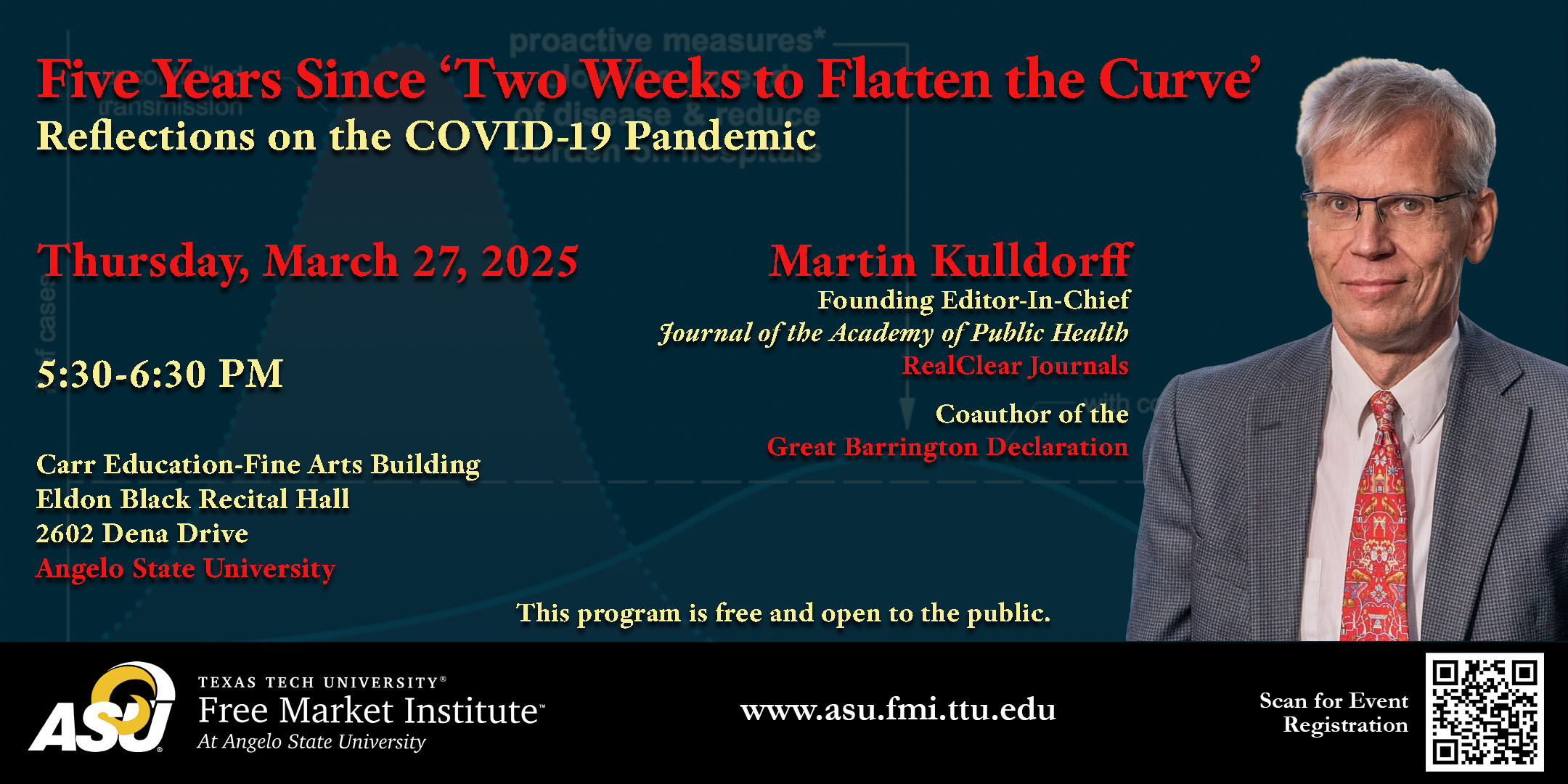
About the Program
With school closures, lockdowns, masking and vaccine mandates, evidence-based medicine and basic principles of public health were thrown out the window during the pandemic, while alternative views were censored. This has caused both short- and long-term collateral public health damage that we must now live with…and die with. It has also generated distrust in the medicine and academia, as it should, with less public support for scientific research. While the mess was created by a small group of scientists in medical leadership positions, like Drs. Fauci, Collins, Birx and Walensky, it falls on all of us, including rank-and-file academics in every field, to restore academic freedom and the integrity of the scientific enterprise.
A video recording of the same program which also took place on March 27, 2025 at Texas Tech University can be viewed on the TTU FMI Event Archives page.
How to Run Wars: A Confidential Playbook for the National Security Elite
April 24, 2025
Abigail Hall Blanco, University of Tampa

About the Program
In an ideal world, the public would simply accept whatever their leaders told them. They would comply with restrictions and mandates, not as a matter of mere obedience, but as a matter of unquestionable patriotic duty. But we don’t live in an ideal world. Abigail Hall Blanco discussed her coauthored book, How to Run Wars: A Confidential Playbook for the National Security Elite (2024), a satirical portrait of America’s contemporary military-industrial complex where leaders must learn: how to control the narrative—every narrative—in their favor; how to completely capture the media and effectively quash dissent; how destroying liberty creates more liberty in the long (long) run; why top-down economic planning, here and abroad, is your best friend; how to flout international, and of course domestic, law and get away with it; and much, much more…
A video recording of the same program which also took place on April 23, 2025 at Texas Tech University can be viewed on the TTU FMI Event Archives page.

Free Market Institute
-
Address
Texas Tech University - Box 45059 - Lubbock, TX - 79409-5059 -
Phone
806.742.7138 -
Email
free.market@ttu.edu
